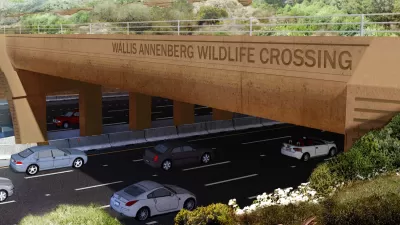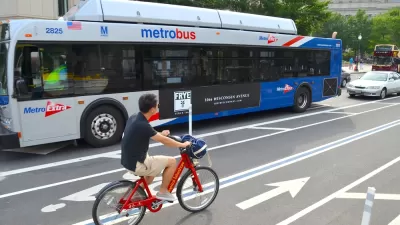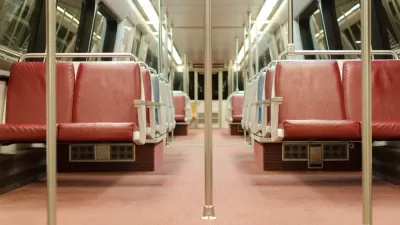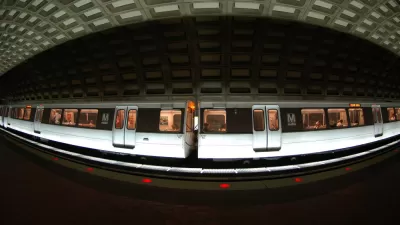The executive director of a research and policy center on privatization and responsible contracting says a proposal to privative parking operations at the Washington Metro Area Transit Authority would bring a half century of regret.
"Two weeks ago, WMATA began taking bids from private companies to operate its parking facilities," according to an op-ed by Donald Cohen, who is the executive director of In the Public Interest, research and policy center on privatization and responsible contracting.
"In exchange for a big up-front payment to the agency, the winning company would collect fees from people parked at train stations for the next 50 years," writes Cohen, who argues that the WMATA might regret that decision for the next 50 years as well.
Cohen calls the proposal "foolish," and lists reasons for doing so, including:
It discourages public transit. In order for the private company to make a profit, parking rates will have to go up — as much as 3% a year, according to WMATA. If it costs more money to park and ride the train, people may look for other ways into the city.
According to Cohen, the proposal to privatize WMATA's parking gets at fundamental questions about public goods and services, with answers crucial to public transit and cities as a whole.
The proposal to privatize WMATA's parking continues a trend of cash-strapped transit agencies looking to privative portions of their operations to cut costs. The Massachusetts Bay Transportation Authority, for instance, is considering a plan to privatize specific types of employment in the agency, such as bus drivers and maintenance workers. Cohen also cites the example of Chicago's decision to privatize its parking meters—a decision described in the past as "Exhibit A for bad public contracting."
FULL STORY: The Deal That Could Hurt D.C. For 50 Years

Pennsylvania Mall Conversion Bill Passes House
If passed, the bill would promote the adaptive reuse of defunct commercial buildings.

World's Largest Wildlife Overpass In the Works in Los Angeles County
Caltrans will soon close half of the 101 Freeway in order to continue construction of the Wallis Annenberg Wildlife Crossing near Agoura Hills in Los Angeles County.

U.S. Supreme Court: California's Impact Fees May Violate Takings Clause
A California property owner took El Dorado County to state court after paying a traffic impact fee he felt was exorbitant. He lost in trial court, appellate court, and the California Supreme Court denied review. Then the U.S. Supreme Court acted.

California Grid Runs on 100% Renewable Energy for Over 9 Hours
The state’s energy grid was entirely powered by clean energy for some portion of the day on 37 out of the last 45 days.

New Forecasting Tool Aims to Reduce Heat-Related Deaths
Two federal agencies launched a new, easy-to-use, color-coded heat warning system that combines meteorological and medical risk factors.

AI Traffic Management Comes to Dallas-Fort Worth
Several Texas cities are using an AI-powered platform called NoTraffic to help manage traffic signals to increase safety and improve traffic flow.
City of Costa Mesa
Licking County
Barrett Planning Group LLC
HUD's Office of Policy Development and Research
Mpact Transit + Community
HUD's Office of Policy Development and Research
Tufts University, Department of Urban and Environmental Policy & Planning
City of Universal City TX
ULI Northwest Arkansas
Urban Design for Planners 1: Software Tools
This six-course series explores essential urban design concepts using open source software and equips planners with the tools they need to participate fully in the urban design process.
Planning for Universal Design
Learn the tools for implementing Universal Design in planning regulations.


























